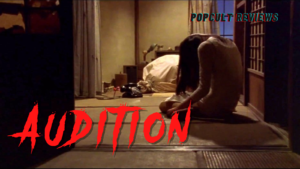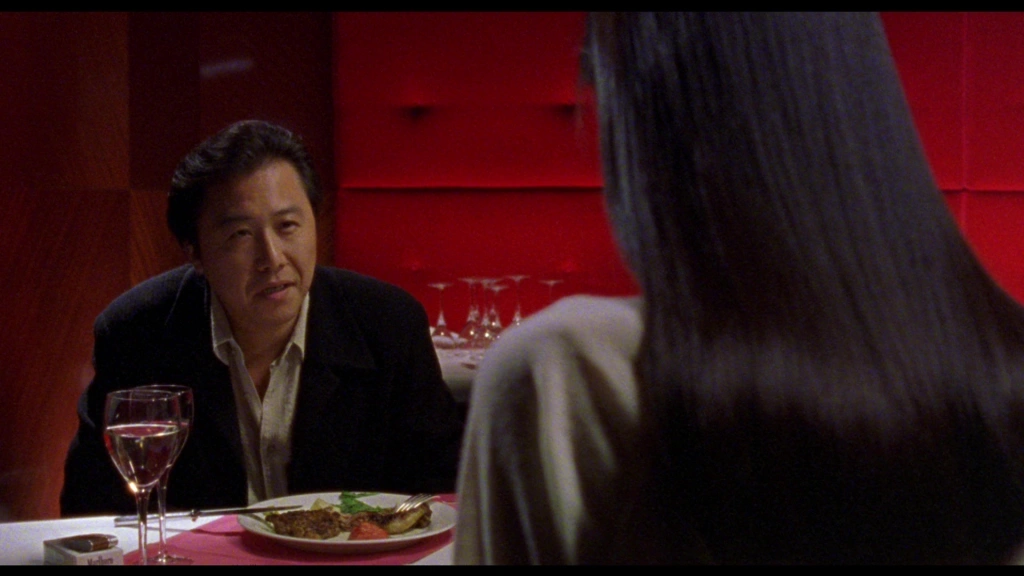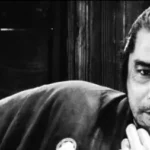Audition: Exploring Japanese Psychological Horror
- By -Maria Mash
- Posted on
- Posted in Japanese Movies
Released in 1999 and directed by Takashi Miike, “Audition” (オーディション) stands as a significant work in Japanese psychological horror cinema. Based on the novel by Ryu Murakami, the film is renowned for its disturbing narrative, psychological depth, and unsettling atmosphere. This article explores “Audition’s” place in the genre of psychological horror, its impact on cinema, and the elements that make it a standout film in horror history.

A Disturbing Narrative
“Audition” begins with a seemingly benign premise: a widower, Aoyama, holds a fake audition to find a new wife. However, what starts as a search for companionship soon transforms into a nightmarish journey. The narrative takes a dark turn as Aoyama becomes entangled with one of the audition candidates, Asami, whose past and intentions are far more sinister than they initially appear.
Moreover, the film’s gradual shift from a romantic drama to psychological horror is executed with masterful suspense. This shift underscores the film’s ability to build tension and surprise the audience, making the eventual revelations all the more shocking. The narrative structure of “Audition” serves as a critical exploration of trust, deception, and the masks people wear.
Psychological Depth and Horror
“Audition” is distinguished by its exploration of psychological horror rather than relying solely on traditional scare tactics. The film delves into themes of trauma, manipulation, and the complexities of human relationships. Asami’s backstory and her interactions with Aoyama reveal deep-seated psychological issues that drive the horror elements of the film.
Additionally, the film’s portrayal of psychological trauma and its impact on individuals creates a sense of dread that is both unsettling and thought-provoking. The gradual revelation of Asami’s true nature adds layers of psychological complexity, making “Audition” more than just a horror film—it becomes a study of the human psyche and the nature of fear.
Cinematic Techniques and Style
Takashi Miike’s direction in “Audition” is marked by its unsettling atmosphere and innovative use of cinematic techniques. The film employs a slow-burn approach, gradually building tension and unease before delivering its more shocking moments. This approach enhances the psychological impact and ensures that the horror elements are more effective.
Furthermore, Miike’s use of unsettling imagery and disturbing scenes is complemented by a carefully crafted soundtrack and sound design that heighten the film’s eerie atmosphere. The juxtaposition of calm, mundane scenes with sudden bursts of horror creates a jarring effect that keeps the audience on edge. These stylistic choices contribute to “Audition’s” reputation as a standout in psychological horror.
Influence on Horror Cinema
“Audition” has had a significant impact on the horror genre, particularly within Japanese cinema. The film’s innovative approach to psychological horror has influenced subsequent works and has been cited as an inspiration by various filmmakers. Its success helped bring attention to Japanese horror and its unique contributions to the genre.
Moreover, the film’s impact extends beyond Japanese cinema. “Audition” has influenced global horror films, contributing to the growing recognition of Asian horror in international markets. Its exploration of psychological themes and its use of suspenseful storytelling have set a precedent for how horror can be approached and executed.
Enduring Legacy and Recognition
The legacy of “Audition” endures through its continued relevance and acclaim in the world of horror cinema. The film is frequently cited in discussions about psychological horror and remains a touchstone for understanding the genre. Its impact is reflected in its inclusion in film festivals, retrospectives, and critical analyses.
In addition, “Audition” continues to resonate with audiences and horror enthusiasts. The film’s ability to evoke strong emotional responses and its innovative approach to storytelling ensure its place as a classic in psychological horror. The film’s enduring popularity highlights its significance and influence within the genre.
Conclusion
In summary, Takashi Miike’s “Audition” is a landmark in Japanese psychological horror, known for its disturbing narrative, psychological depth, and innovative cinematic techniques. The film’s exploration of complex themes and its impact on the genre underscore its significance as a masterful work of horror cinema. Its legacy continues to influence and inspire filmmakers, affirming its place as a timeless and influential classic in the world of psychological horror.



